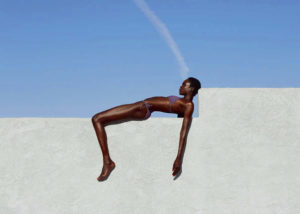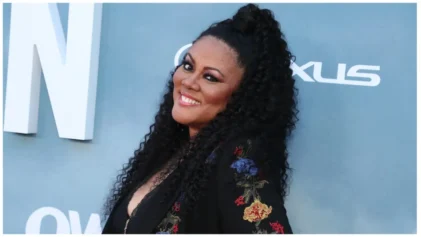The fetishism of Black women in mainstream culture is no novel notion. Black women have been seen as sexual objects since slavery, but the topic has reemerged via Nicki Minaj and Kim Kardashian’s recent pictures.
In its most basic form, a fetish is defined as “something, such as a material object or a non-sexual part of the body, that arouses sexual desire and may become necessary for sexual gratification” or “An abnormally obsessive preoccupation or attachment; a fixation.”
The objectification of Black women in regards to their body parts is just that—a fixation. And it’s all too prevalent. From movies to videos, photos to Instagram, it’s everywhere you turn.
Back in 1979, People magazine interviewed Jean-Paul Goude, who has been the subject of much recent media scrutiny because of his explicit Paper photo shoot with Kim Kardashian, featuring full frontal nudity and her naked behind, intended to “break the Internet.” In the interview, Goude exposed the almost animalistic obsession men of other races have had with Black women throughout history.
“Jean-Paul has been fascinated with women like Grace (Jones) since his youth,” the 1979 article reads. “The son of a French engineer and an American-born dancer, he grew up in a Paris suburb. From the moment he saw West Side Story and the Alvin Ailey dance troupe, he found himself captivated by ‘ethnic minorities—black girls. I had jungle fever.’ He now says, ‘Blacks are the premise of my work.’”
Now, Goude is no ordinary photographer. This man is world-renown and revered for his work. Work which blatantly and proudly showcases Black women in a primal and almost nonhuman manner. So although the Paper shoot was exploiting the assets of a white woman, it still was inspired by Goude’s Black obsession—and mirrors an earlier shoot he did of a Black model.
“First of all women in general are experiencing a heightened sense of objectification,” Jessica Ann Mitchell, founder of OurLegaci.com & BlackBloggersConnect.com, explained to AtlantaBlackStar in a recent interview. “Women are seen as hypersexualized beings, but when it comes in terms of Black women, we have historically been viewed as community property in the United States. Throughout history it has been expected of the Black woman that her time, her life’s work and her body be used to satisfy other people. So the Black women’s body has been seen as something to be enjoyed by others, but not celebrated herself unless it appeals to the mainstream patriarchal view.”
But the problem goes deeper than men pushing these ideals on women. It has reached so deeply into the culture that women have begun to feed into the exploitation themselves.
This notion is explored in a Tulane University journal in an article entitled “The Patriarchal Gaze: To What Extent Women Are Controlled And Guided by the Look As Is Reflected In Mainstream Culture.”
“Because there are little to no instances of male objectification in popular culture or everyday life, the burden of scopophilia, the active pleasure of looking, falls squarely on the male gender,” the article poses. “The exclusive male control of the medium of film requires that any pleasure derived is in a male context. If women are to gain pleasure from film, they do so by assuming the male gaze and accepting themselves and other women as objects.”
Women’s acceptance of their own figures as simply objects for male pleasure has recently begun to be cloaked in a veil of “feminism,” with women maintaing that they are showing their bodies to express their sexual freedom.
“Not all expressions of sexuality are inherently anti-oppression, because some of them actually uphold the objectification and exploitation,” Mitchell said. “For example, there was a big uproar with Nicki Minaj’s ‘Anaconda’ and some people were automatically grasping it and saying ‘Yes! Look at her, she’s showing her sexuality, she’s expressing herself.’ Then others were a bit more quiet and cautious because the expression that Nicki Minaj put out there with ‘Anaconda’ could be viewed in a positive way, if you are talking about a woman being in control of her own sexuality and presentation, but if that presentation is hinged upon feeding into the traditional patriarichal gaze then is it really liberation?”
Even if you are not posing naked for a magazine or album cover like Minaj, and you are simply baring your boobs for all 500 of your Instagram followers, is that not perpetuating the hyper-sexualization of women? Some might claim they are doing it to celebrate their bodies and express their sexuality—but would they still be posting those pictures if not a single male follower hit the like button?
In order to turn this cycle around, women first and foremost have to stop participating in it.
“We need to watch what we are putting into our bodies,” Mitchell said. “What are you putting into your psyche and how are you really going to view women after listening and viewing these things? And some people say it’s just music, it’s just entertainment, but is it really? I don’t think so.”



